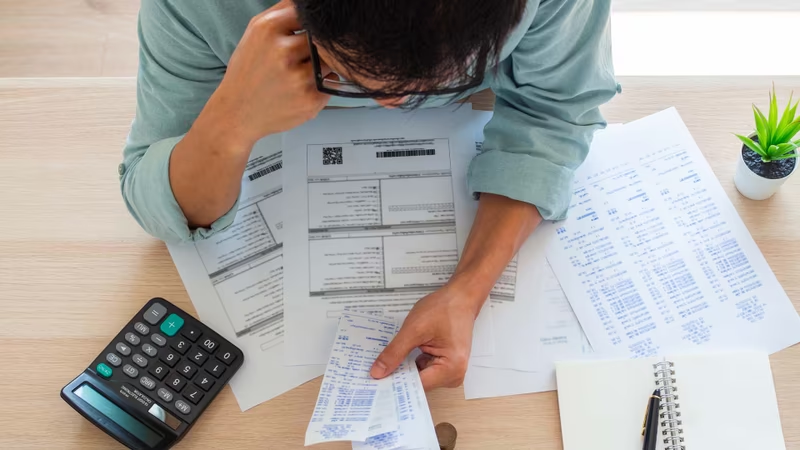Do you want to have a debt-free life or make an investment and reap its benefits? Both demand money and commitment from the participant. Before you take a decision, there are a few things you should consider, which will assist you in making the choice that is best for you. Which should come first: paying off debt or investing money?
Why Investment Matters
Getting a firm grasp of investing's fundamentals is best before delving into the weeds. Long-term investments provide more room for growth but also have more possibility for loss. Investing in stocks, for instance, can boost your wealth through dividend payments and appreciation in the value of your holdings.
Investing early, reinvesting profits and maintaining diversification are three strategies for capitalising on the long-term benefits of investing. Unfortunately, younger generations are less likely to invest than their parents.
Difference Between Debt and Investment
An investment is a long-term financial commitment, typically made in the hope that its worth will increase over time. However, debt is defined as money that has already been spent and for which interest is being charged.
Invest or Pay Off Debt? A Matter of Personal Choice
If you have a mindset that knows money, you'll quickly grasp the potential of investing. It's possible that your frequent, small payments will build into a sizable sum. Calculating each option's potential gains and losses makes it clear if it is better to invest or pay down debt.
Which Aspects Should Be Considered
Beware of Losing Money to Excessive Interest Rates
Think about it: if we want a 15% return on our investment but have credit card debt with an 18% interest rate, we are effectively borrowing money at 18% and making just 15%.
Despite our success as investors, we are still making annualised, compound losses of 3%. That is a huge obstacle to making money in the stock market. Otherwise, it's a foregone conclusion that you'll run out of money.
But note that if we instead pay off the 18% interest loan with the money we were planning to invest, we will no longer lose 3% annually. The key goal is to eliminate bad debt before putting money into investments. While you're paying off your debt, you can get some practice investing using paper trading
Use Calculators for Investing Analysis
Use the handy investment calculators to figure out if a company is worth putting your money into. They will streamline your investigation and guarantee that your calculations adhere to strict standards.
Start With Your Budget
Managing day-to-day costs, including rent, utilities, transit and food, is challenging. If you can afford them without breaking the bank, you should feel proud of yourself. Step two is settling on a plan for your newly acquired disposable income.
While it's good to treat yourself occasionally, doing so too frequently could derail your savings plan. Budgeting is crucial to get out of debt or to invest. Spend some time keeping a careful tab on your cash flow.
Save an Emergency Fund
You should always have some emergency reserve set aside before putting money towards debt or investment. This is where you'll put money aside for major car repairs, medical expenditures and a possible loss of income.
If you start putting away money now, even if it's just Rs 1,000 or Rs 2,000, you can reduce the likelihood that these unexpected events that will cause you to incur further debt. Consider lowering the figure significantly if you have high-interest debt, at least until you've paid off the most expensive of your bills.
Save up enough money for three to six months' worth of living costs as a long-term objective.
Don't Skip Your Company's Retirement Plan Matches
It's important to have a look at the company's retirement plan before jumping into any major debt reduction or investment plans. That's cash in your pocket. If you don't take advantage of this perk, it's the same as giving up money, so do it now so you can focus on other things later.
Pay Off High-interest Debts Before Investing
You are not alone if you are attempting to eliminate your debt. The majority of citizens have some form of consumer debt. Of course, not all debt is created equal.
Compare your 5.05% federal student loan to the 16.99%–23.91% you'll pay on your credit card debt. The compound interest on high-interest credit card debt makes it more challenging to eliminate the debt. You can avoid paying significant interest by taking care of it first.
To top it all off, it could free up money for your savings or investment goals.
When to Invest First and Pay Off Debt Later?
You should look at the numbers before making a decision between investing and paying off debt. It's important to weigh the interest you're paying against the return you're expecting from your investments. Often, tax implications must be taken into account.
Depending on your income bracket, you may be able to take a tax deduction for the interest you pay on certain loans and mortgages. Seek the advice of a tax expert if you need help. Even if you choose to invest your money instead of using it to reduce your debt, you still have to make your regular payments on schedule.
Conclusion
The purpose of this blog is to present a comprehensive study of when to prioritise paying off debt or starting an investment. One needs to make the correct choice and live with it. You need to make the right choice at the right time to reap the benefits of investing.
Automate your Daily Savings with the best Daily Savings app and reap the perks of finance knowledge! Digital Gold Investment Apps like Change Jar can also be used for the same.










